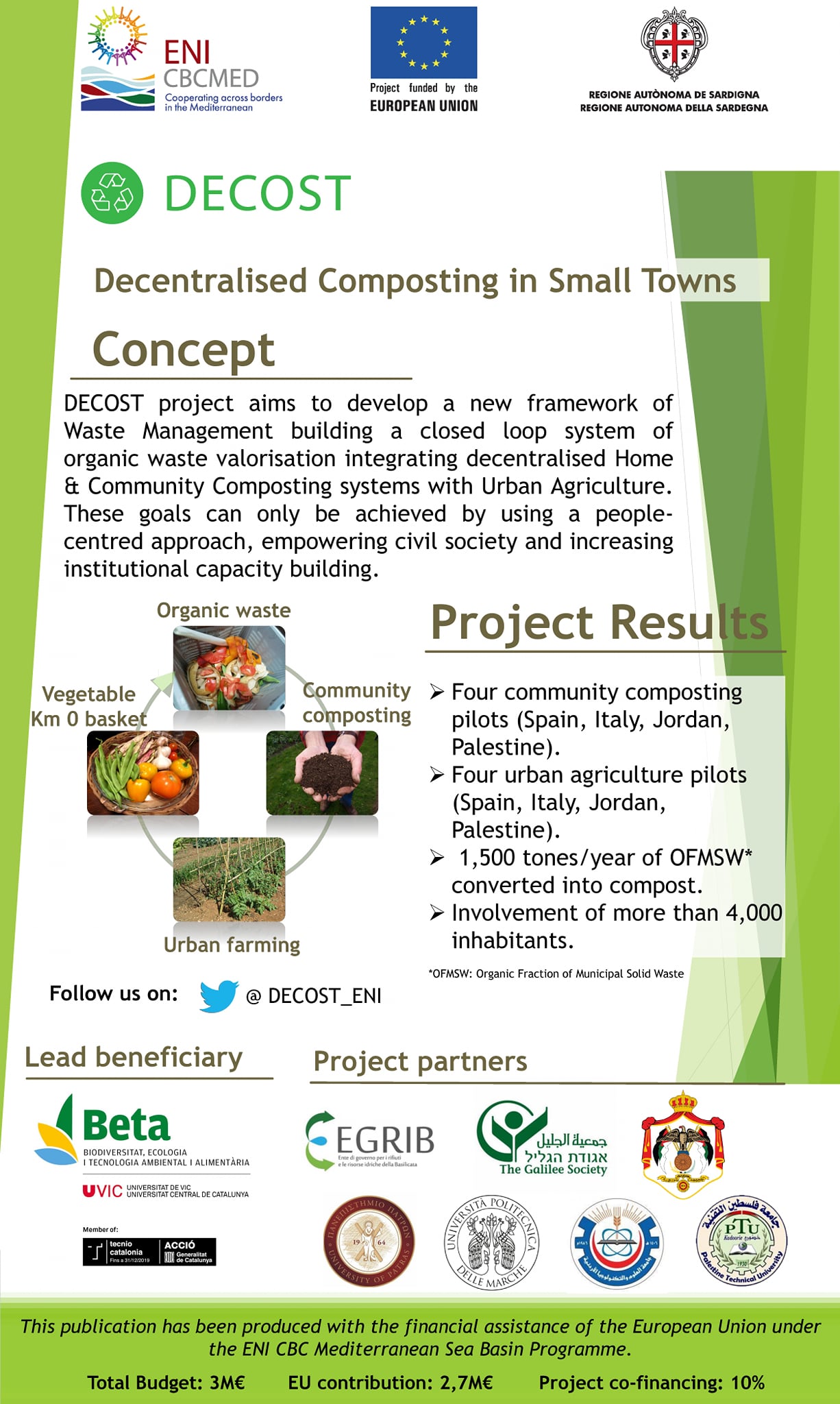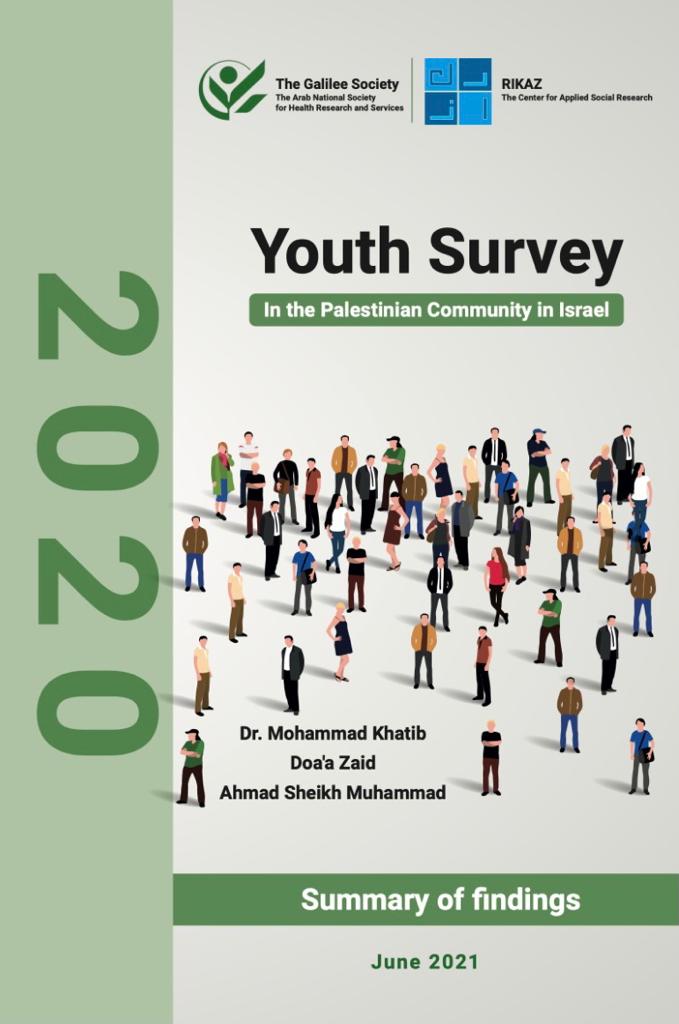Waste management (WM) represents a cornerstone in the effort to preserve Mediterranean cities and guarantee a healthy living environment for communities. Municipal WM, which represents a big challenge for the area, is directly affected by population growth and concentration, urbanization and tourism. The growth limits faced in the MED cities call for smart, sustainable, and inclusive urban development. Moreover, agriculture has become of great interest in finding new answers for how cities can master recent social, economic, and ecological challenges.
DECOST project aims to develop a new framework of WM building a closed loop system of organic waste valorisation integrating decentralised Home & Community Composting systems with Urban Agriculture. Innovative results in waste valorisation must lead to a broader approach in terms of sustainability; waste urban planning shall be viable from an environmental/economic perspective but also bearable and equitable from a social/environmental and social/economic points of view. These goals can only be achieved by using a people-centred approach, empowering civil society and increasing institutional capacity building.
DECOST is based on the participation of a wide range of actors (Waste Agencies, Municipalities and Research Centres) of 6 different countries, 3 of them EU Mediterranean Countries (Spain, Italy and Greece) and 3 South-East Mediterranean Countries (Palestine, Jordan and Israel) resulting in an international partnership that brings different backgrounds and expertise and are directly engaged in the local governance processes. Integrated Municipal Solid Waste Management Plans and pilot initiatives will be implemented at 4 different municipalities (Spain, Italy, Jordan and Palestine) aiming to (i) reduce food waste and valorize 1,500-2,000 t organic waste/year, (ii) use the produced compost in urban agriculture projects, (iii) create green jobs through DECOST teams (iv) train staff of public administrations (v) use IT tools and mobile Apps for citizen science and engagement and (vi) address municipal sustainability at long-term strategic level.


